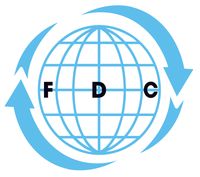- Payment Terms: Enquire
- Location: Nairobi, Kenya
- Duration / Course length: 5 Days
- Starting Date: Enquire About It
- Timings: Enquire
Course details
This course offers an introduction to GIS and how it is used in public health and epidemiological research. It will introduce participants to the basics including working with and integrating spatial and non-spatial data; geographic scale and spatial precision; decoding; visualization; thematic mapping; and understanding spatial relationships. Specific skills and tools will be introduced in relation to assessing exposure to a range of environmental risks, and a particular focus will be given to methods for spatial linkage of exposure, contextual and confounder information for epidemiological or health risk assessment studies.WHO SHOULD ATTEND
Public health practitioners, epidemiologists, exposure scientists, quantitative health geographers, risk assessors, students.
.COURSE OBJECTIVES
By the end of this course, the learner will - within a public health context - be able to:
- Understand the basics of spatial data and its role in decision making
- Undertake spatial analysis of environment and health data
- Explain why geographic data and tools are important for health decision makers
- Understand geography as a unifying framework and GIS as a tool to collect, link, analyze, visualize, manage, and share data and information
- Distinguish between the different tools used to collect, analyze, and manipulate geographic data
- Communicate with technical specialists to develop program-specific geographic products Work with and integrate spatial and non-spatial data
- Integrate data from different geographic scales and spatial precision
- Geocode and visualize spatial data
- Investigate spatial patterns of health risks and disease rates
- Produce thematic maps and reports
Section 1: GIS for Health Sector Programme Management Introduction
- Introduction to GIS
- Basic concepts in GIS
- GIS advantages in Health
- GIS for health applications
- Introduction to Quantum GIS(QGIS) and its user interface
- Digitizing and scanning of maps
- Using GPS
- Using GPS utility software for managing and downloading and managing data
- Using Mobile Phones (ODK) for GIS data collection
- Importing GPS data to Quantum GIS
- Extraction of data from GPS
- Mapping GPS data
- Bringing ODK data into a GIS
- Map layers in GIS
- Composing a GIS layout from GIS layers
- Geoprocessing
- Key elements of a map
- Composing a map
- Case study
- Creating health-care map layers
- Spatially join and aggregate point data to create choropleth maps
- Building and coding the new variables
- Using data from databases database management
- Project maps for health data analysis at different geographic scales
- Techniques of overlaying GIS data
- Extracting subsets of GIS data for mapping
- Prepare incidence and prevalence maps
- Visualize malaria mortality by regions
- Use buffer analysis to identify affected populations
- Participatory mapping for disease outbreaks
General Notes
- All our courses can be Tailor-made to participants needs
- The participant must be conversant with English
- Presentations are well guided, practical exercise, web based tutorials and group work. Our facilitators are expert with more than 10years of experience.
- Upon completion of training the participant will be issued with Foscore development center certificate (FDC-K)
- Training will be done at Foscore development center (FDC-K) center in Nairobi Kenya. We also offer more than five participants training at requested location within Kenya, more than ten participant within east Africa and more than twenty participant all over the world.
- Course duration is flexible and the contents can be modified to fit any number of days.
- The course fee includes facilitation training materials, 2 coffee breaks, buffet lunch and a Certificate of successful completion of Training. Participants will be responsible for their own travel expenses and arrangements, airport transfers, visa application dinners, health/accident insurance and other personal expenses.
- Accommodation, pickup, freight booking and Visa processing arrangement, are done on request, at discounted prices.
- One year free Consultation and Coaching provided after the course.
- Register as a group of more than two and enjoy discount of (10% to 50%) plus free five hour adventure drive to the National game park, in Nairobi.
- Payment should be done two week before commence of the training, to FOSCORE DEVELOPMENT CENTER account, so as to enable us prepare better for you.
Job roles this course is suitable for:
epidemiologists , risk assessors , quantitative health geographersCourse Location
About Foscore Development Center
Foscore Development Center(FDC-K) is a global training and consulting firm that has been serving leading businesses in many countries.We specialize in capacity building, consultancy and talent development solutions for individuals and organisations, through our highly customized courses and experienced consultants, in a wide array of disciplines
Mission
To offer quality trainings, research and innovation with a specific end goal to create pioneers in the fields of Engineering, Technology, Enterprise Development, Research and Social skills to suit the requirements of a dynamic world.
Vision
To be Institution of worldwide greatness in Training, Research and Innovation for advancement See all Foscore Development Center courses
Healthcare and Medical Related Questions
Enquire about this course
You may add more courses here,
your list will be saved.



